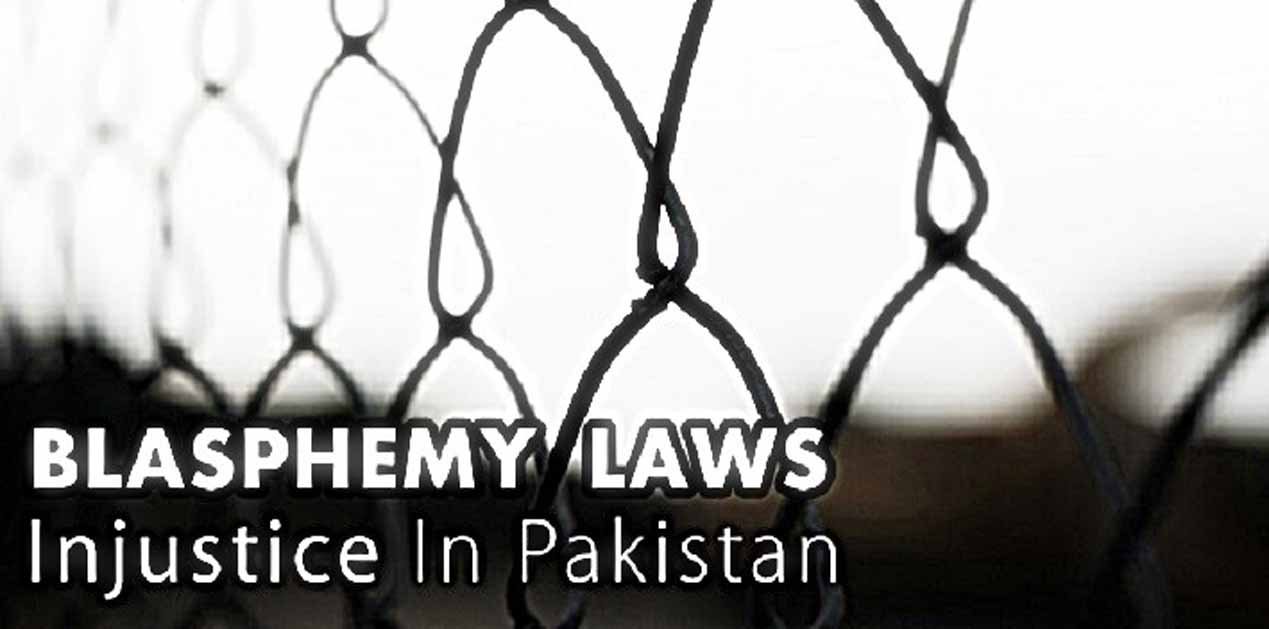The controversy surrounding the blasphemy case of Pakistani citizen Aasia Noreen, better known as Aasia Bibi of village Ikkawali in Sheikhpura, Punjab, has drawn attention to the culture of extremism in Pakistan and showed the government and the army in a very poor light. It is only the Supreme Court that has come out with flying colours.
The Case
Aasia Bibi was alleged to have made three “defamatory and sarcastic” statements about the Prophet on 14 June 2009 during an argument with three Muslim women while the four of them were picking fruit in a field in Sheikhupura. The Muslim women objected to her touching the water container, saying that as a non-Muslim she was unfit to do so. Aasia Bibi was later beaten up at her home, during which her accusers alleged that she confessed to blasphemy. The women later went to a local cleric and accused her of blasphemy against the Prophet. Aasia was arrested after a police investigation.
A trial court convicted Aasia Bibi for blasphemy in November 2010 under Section 295-C of the Pakistan Penal Code (PPC) and gave her the mandatory death sentence. The Lahore High Court (LHC) upheld her conviction and confirmed her death sentence in October 2014. She challenged the LHC verdict in the Supreme Court, which stayed her execution in July 2015 and admitted her appeal for hearing. The hearing had been scheduled for October 2016, but was delayed as one of the judges, Justice Hameed-ur Rahman recused himself from the bench. In October 2018 a three-judge bench headed by the Chief Justice Mian Saqib Nisar, with Justice Asif Saeed Khosa and Justice Mazhar Alam Khan Miankhel as members, finally heard her last appeal against execution, eight years after being convicted. The apex court reserved its ruling on 08 October. On 31 October 2018, the Supreme Court acquitted Aasia Bibi, after accepting her 2015 appeal thereby reversing the judgements of the high court and that of the trial court.
Her case had attained prominence after the then governor of Punjab Salman Taseer met Aasia Bibi in prison in 2011 and advocated a retrial of her case. Subsequently, his own security guard, Mumtaz Qadri gunned him down in broad daylight in Islamabad on 04 January 2011. Two months after Taseer was killed, Pakistan’s religious minorities minister, Shahbaz Bhatti, a Christian who spoke out against the blasphemy law, was shot dead in Islamabad on 02 March 2011. Qadri was executed in 2016 after the court found him guilty of murder.
The Tehreek-I Labbaik Pakistan (TLP)
On 13 October, five days after the Supreme Court reserved its judgement, the Barelvi Tehreek-I Labbaik Pakistan (TLP) headed by Khadim Hussain Rizvi, threatened to paralyse the country within hours if the Supreme Court set Aasia Bibi free. The mother organisation of the TLP, Tehreek-I Labbaik Ya Rasool Allah (TLYR) had been set up in the wake of the hanging of Mumtaz Qadri in 2016. The TLP was registered as a political party and it shot into prominence after its strong showing in a by-election in Lahore in 2017. Later, it paralysed the federal capital in November 2017, protesting against supposed changes in the oath of legislators. In the July 2018 general elections, though the TLP did not win any National Assembly seats, it garnered over 22 lakh votes and became the fifth largest political party in Pakistan.
Rejecting the Supreme Court verdict that acquitted Aasia Bibi, the TLP started protests in Lahore on 31 October blocking main arteries and paralaysing the traffic. Soon the protests spread to other important cities like Islamabad, Rawalpindi, Gujrat, Gujranwala, Lahore, Kasur, Okara, Faisalabad, Multan, Hyderabad, Karachi, Peshawar etc. Other religious parties like the Jamait-ul Ulema Islam-Fazl (JUI-F), Jamaat-I Islami (JI), Jamaat-ud Dawa (JuD) of Hafiz Saeed, Jamaat-ulema Pakistan (JUP), and Markazi Jamiat Ahle Hadith (MJAH) also rejected the three-judge order, and decided to join the protest from Friday, 02 November.
In a nation-wide address on 31 October, Imran Khan warned that the Government would fulfil its responsibility to ensure its writ. He criticised the language used by a "small segment" in reaction to the verdict adding that the language used against the Supreme Court judges, the army chief and other important personalities was intolerable. Similar bravado was displayed by the Information Minister who warned the protesters not to ever consider the state to be weak.
However, the bravado lasted less than 24 hours. Imran Khan left the country a day before his originally scheduled date. Violent protests that ensued forced the Government to make a submissive agreement with protestors, agreeing not to oppose a review petition filed against the Supreme Court judgement, set free the arrested protestors, and above all, set in motion a legal process to put Aasia Bibi’s name on the country’s Exit Control List (ECL) to prevent her from leaving the country. All that the government got in return was the TLP agreeing to call off the protests and a farcical apology if it ‘hurt the sentiments or inconvenienced anyone without reason’.1 No remorse was expressed about its calling for the killing on the judges or asking the army to mutiny against the army chief.
In a nutshell, instead of enforcing the law, the Imran Khan Government was seen to have not merely capitulated but set yet another dangerous precedent for the future. The Government’s claim that the agreement restored peace had few takers against the backdrop of the appeasement that was seen as having seriously dented the authority of the state. The zealots have been furthered strengthened and emboldened. The message to them was that they could continue to spew venom and indulge in violence and the state would meekly cave in.
What constrains the ruling Pakistan Tehrik-I Insaf (PTI) from dealing with religious protests firmly is its own past history. The PTI was the one political party that had justified the TLP’s Islamabad siege in 2017 and supported its demand that the law minister resign. Ministers like the Punjab information minister have even visited the grave of Mumtaz Qadri and paid homage to the executed murderer. Several leaders have attended rallies of extremist sectarian groups and not shied away from playing the religious card in the elections.
The Army too has been seen as weak when faced with the venom hurled against it by the TLP. In the face of an open incitement to mutiny, all that the normally voluble spokesman could say was that the military would not intervene.
Blasphemy Law
The blasphemy law in Pakistan dates back to 1860 when it was made a crime to disturb a religious assembly, trespass on burial grounds, insult religious beliefs or intentionally destroy or defile a place or an object of worship, punishable by up to 10 years in jail. In the 1980s, Zia-ul Haq added Sections 295-B and 295-C to the PPC that prescribed life imprisonment for ‘wilful’ desecration of the Quran, ‘death, or imprisonment for life’ for blasphemy against the Prophet. This allowed religious extremists to spread hatred, incite and provoke violence and even kill people in the name of religion.
Statistics collected by the Lahore-based Center for Social Justice show that a disproportionate number of minorities, relative to their population, have been accused of blasphemy. Of the 1,472 people charged under the blasphemy laws between 1987 and 2016, 730 were Muslims, 501 were Ahmadis, 205 were Christians and 26 were Hindus. So far, no one has been actually executed for blasphemy. Most have had their sentences overturned or commuted on appeal. In majority of the cases, the higher courts have determined that the compliant, the investigation and the evidence were fabricated based on personal or political vendettas. According to recent studies by the Amnesty International, ‘the blasphemy law is widely abused to perpetrate hate crimes based on religion, regulate personal vendettas and perpetrate economic injustice’.2
The Future
The ordeal is not over. At the time of writing, the complainant in the case, Qari Muhammad Salam, has filed a review petition in the Supreme Court against Aasia Bibi’s acquittal. He had also demanded that her name be put on the Exit Control List. While she has been freed from jail, there are conflicting reports whether she is still in the country or has proceeded abroad. Despite her acquittal, as the Guardian put it, “She may have been freed, but she’s never likely to be free… She will spend the rest of her days looking over her shoulder in fear of an international assassin.”3
The outcome of the review petition will have a bearing not only on the future of Aasia Bibi but would be another test for the judiciary and the government. Having witnessed the impact of their decision, pressure on the same judges dealing with the review would be enormous. The three judges and especially Justice Khosa who has heard blasphemy-related cases in the past and had confirmed Mumtaz Qadri’s death penalty, would be at risk from the fanatics looking for revenge. Soon after the judgement, a TLP leader, Afzal Qadri had declared the judges ‘wajabul katl’ (worthy of killing) and called upon their domestics to kill them.
The moot question is also whether the government that has caved in once and is known for its ‘U’ turns be capable and willing to uphold the rule of law? And will the army that looms larger than life in Pakistan continue to ignore slurs on its chief and calls to mutiny?
Analysis
Pakistan will confront the legacy of the case for a long time. The verdict and its continuing aftermath will play a critical role in shaping the future narrative on blasphemy cases and extremist religious groups. In fact, this case has already become a test case for Pakistan, both legally and for the society at large. Legally, it represents the uncomfortable fact that the lower judiciary and even the High Court are unable to resist pressures from hard-line groups even though the evidence is flimsy, tainted and doctored. Incremental and increasing Islamisation in Pakistan has led to a situation where even a flimsy allegation of blasphemy can result in mayhem and widespread destruction of property. Socially, it represents the depth of intolerance and extremism that has fostered in Pakistan and the kind of insecurity that the minorities face on a daily basis.
Clearly, the space for Pakistan to be a tolerant and country is rapidly shrinking. 4
(The author is a former Special Secretary, Cabinet Secretariat, Government of India.)
References
- Rana Bilal, ‘Government, TLP reach agreement; state to take legal measures to place Asia Bibi's name on ECL’. Dawn, 02 November 2018, https://www.dawn.com/news/1443123, accessed 05 November 2018
- Wasim Abbasi, ‘No execution under blasphemy law in Pakistan so far’, The News, 01 November 2018, https://www.thenews.com.pk/print/388047-no-execution-under-blasphemy-law-in-pakistan-so-far, accessed 05 November 2018
- Harriet Sherwood, ‘Quashing of Asia Bibi’s blasphemy charge will not end her suffering’ The Guardian, 31 October 2018, https://www.theguardian.com/world/2018/oct/31/quashing-of-asia-bibis-blasphemy-charge-will-not-end-her-suffering, accessed 05 November 2018
- For a detailed discussion on the subject see the author’s ‘Pakistan: Courting the Abyss’, NOIDA: Harper Collins Publishers, December 2016, pp. 143-164
(The paper is the author’s individual scholastic articulation. The author certifies that the article/paper is original in content, unpublished and it has not been submitted for publication/web upload elsewhere, and that the facts and figures quoted are duly referenced, as needed, and are believed to be correct). (The paper does not necessarily represent the organisational stance... More >>
Image Source: https://pray.interserve.org/wp-content/uploads/2017/06/pakistan-injustice-blasphemy-law.jpg











Post new comment